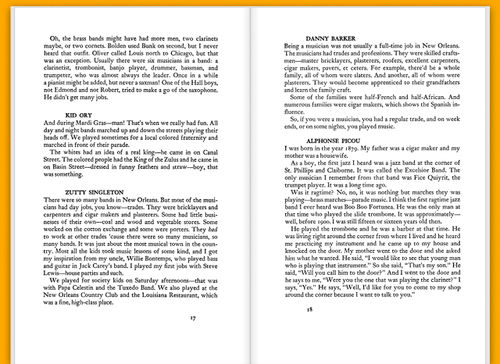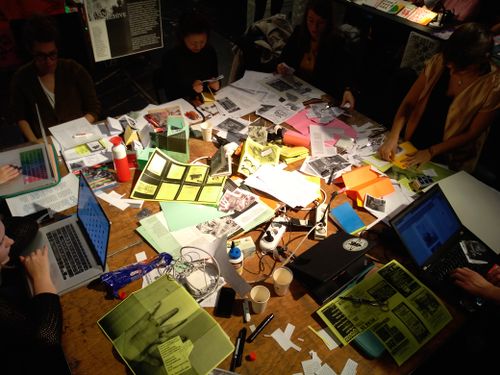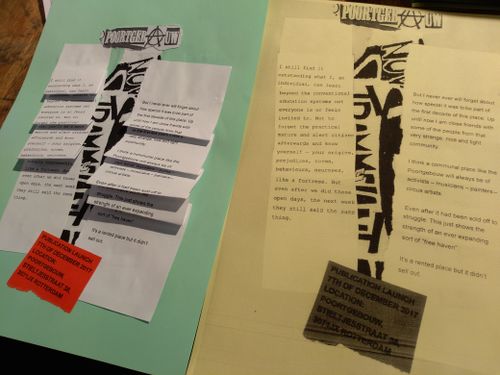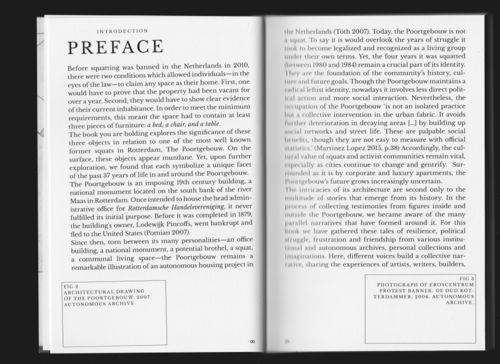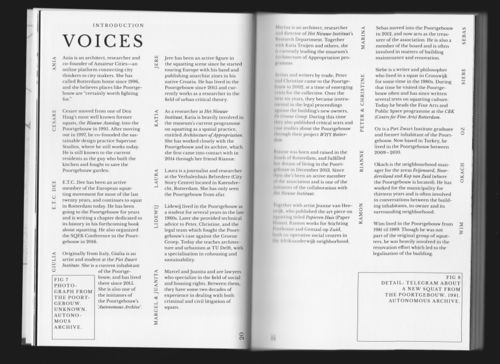User:Tash/RW&RM 01
My writing practice
Enjoys writing (creative and formal)
- Began with prose in english, writing journals - goes through phases of writing journals
- Writing as an extension of thinking and memory, helps come to realizations and self discoveries
- Professional experience: used to work for a design blog, articles, social media, live reporting and copyedits (e.g. What Design Can Do http://www.whatdesigncando.com/author/natasha/ )
Reading & writing methods
- Visual writing exercise: 'Two Things' text
Takeaways: How to arrange ideas in the most impactful order - pay more attention to structure, leading sentences - The importance of copyediting and proofreading shouldn't be underestimated.
Editing methods: Active/passive, Orwell's editing tips - The advantage of writing and making simultaneously - that one can inform the other, always moving, always taking shape
- The collective narrative / interview chain: the creation of authorship and attitude through editing.
Another impact of this method is the sense of pluralism; conflicts are not avoided, realities are presented in their many versions. Reference: Hear Me Talkin To Ya by Nat Shapiro. - Writing the introduction, blurb and promotional text
- Zine camp: experimenting with text as modular pieces of code, creating narratives in non-linear ways.
Interview methods
On ethics and good interview practice
- In preparation
– It is important that procedures for interviews are laid out in writing, and are clearly explained to interviewees before interviews proceed. It is expected that interviewees will be supplied with the written version of these procedures.
– Interviewees have to be happy with the location of the interview, and should be offered alternatives (public/private).
– Confidentiality is an important concern. Interviewees should not normally be named (unless their permission has been explicitly sought, and this should only be done where a name is essential for the pursuit of the research in question).
– Permission. Any recorded contribution, in written form, on tape etc., or in notes taken from the interview by the interviewer, should be used in accordance with the wishes of the interviewee. If possible, interviewees should give their assent in writing.
- Types of Interviews
1. Informal, conversational interview - no predetermined questions are asked, in order to remain as open and adaptable as possible to the interviewee's nature and priorities; during the interview, the interviewer "goes with the flow".
2. General interview guide approach - the guide approach is intended to ensure that the same general areas of information are collected from each interviewee; this provides more focus than the conversational approach, but still allows a degree of freedom and adaptability in getting information from the interviewee.
3. Standardized, open-ended interview - here, the same open-ended questions are asked to all interviewees (an open-ended question is where respondents are free to choose how to answer the question, i.e., they don't select "yes" or "no" or provide a numeric rating, etc.); this approach facilitates faster interviews that can be more easily analyzed and compared.
4. Closed, fixed-response interview - where all interviewees are asked the same questions and asked to choose answers from among the same set of alternatives. This format is useful for those not practiced in interviewing.
Writing our own methodology
- Our interview procedure: https://pad.pzimediadesign.nl/p/interviews_PG_method
- Research on collecting stories, oral history in Rotterdam: Interview Verhalenhuis Belvedere
- Research on writing about subcultures: Interview Siebe Thissen (CBK)
Going forward
- More reading. In practice I'm quite comfortable with writing; but I want to learn more theory.
- Reading & writing as technology; the alphabet as a system of understanding and recording memory which has, over the years, been naturalized
- Questions for next trimester: How to experiment more with language on a micro level (e.g. instead of narratives, on words and their meanings)? On gestures and interpretations? How is language used (politically, culturally) in the realm of software & tech? What kind of information is revealed in written vs spoken text? In the context of book scanners, what is the impact of copying, distorting, censoring language?

